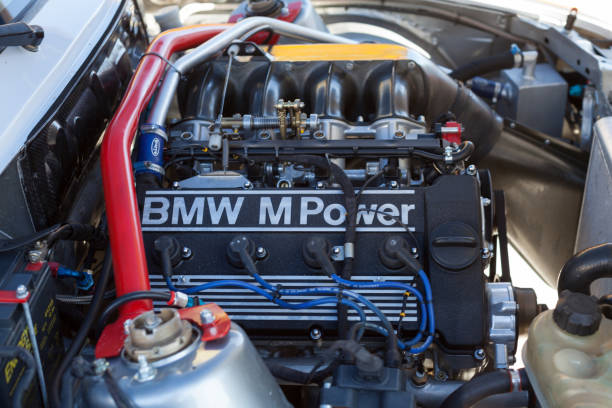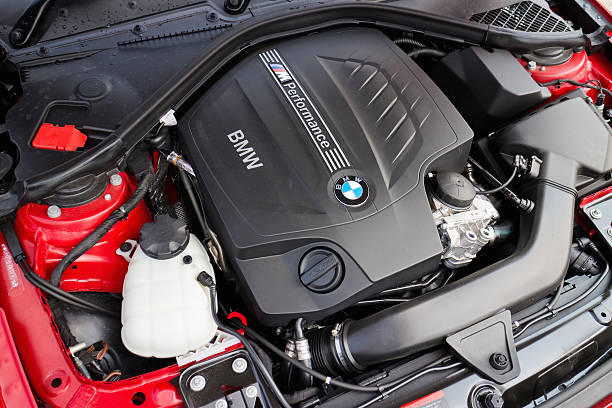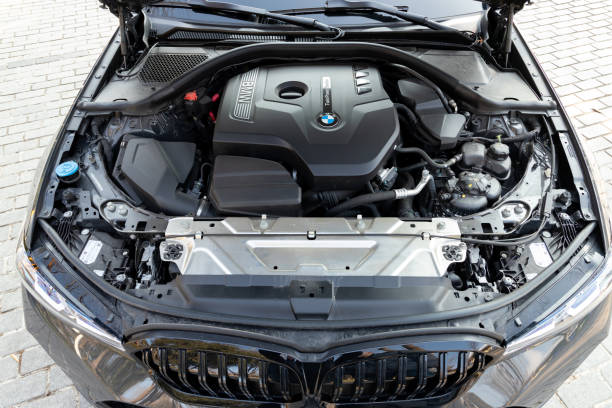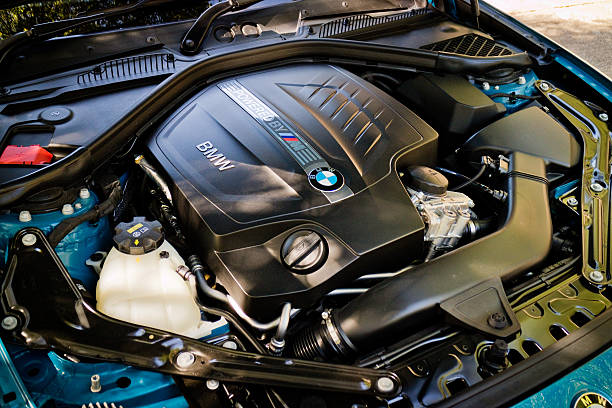Welcome to our expert guide on how to assemble BMW engines – an intricate process that demands precision and expertise. Whether you’re a seasoned mechanic or a DIY enthusiast, follow these detailed steps to navigate the assembly of your BMW engine successfully.

BMW Engine Assembly Guide
- Gathering Essential Tools: Before embarking on your engine assembly journey, ensure you have all necessary tools on hand. A torque wrench, socket set, engine assembly lubricant, and BMW-specific parts are crucial for a seamless process.
- BMW engine assembly tools, DIY BMW engine build
- Thorough Cleaning and Inspection: Begin by cleaning all engine components meticulously, paying special attention to cylinder heads and pistons. Inspect each part for signs of wear or damage, replacing any faulty components.
- BMW engine cleaning tips, component inspection guide
- Lubrication is Key: Apply a high-quality engine assembly lubricant generously to all moving parts. Proper lubrication ensures reduced friction and guarantees the longevity of your BMW engine.
- BMW engine lubrication guide, best lubricants for BMW engines
- Installing Pistons and Connecting Rods: Carefully install pistons and connecting rods into the cylinders, ensuring correct ring gaps and orientation. Use a ring compressor for a smooth and precise installation.
- BMW piston installation, connecting rod alignment
- Setting Timing and Camshaft Installation: Follow BMW specifications to set engine timing correctly. Install camshafts with precision, aligning them with specified timing marks, and tighten bolts to the recommended torque.
- BMW engine timing guide, camshaft installation tips
- Cylinder Head Attachment: Place cylinder heads onto the engine block, ensuring proper alignment. Use new gaskets for a reliable seal and torque cylinder head bolts following the manufacturer’s recommendations.
- BMW cylinder head installation, gasket sealing techniques
- Oil Pump and Pan Installation: Attach the oil pump and pan, ensuring all gaskets are in place. Proper oil circulation is vital for engine health, so ensure everything is securely sealed.
- BMW oil pump and pan installation, engine lubrication system
- Accessory Mounting: Install accessories such as the water pump, alternator, and power steering pump. Connect all wiring and hoses according to the BMW service manual.
- BMW engine accessory installation, wiring and hose connection
- Comprehensive Checks: Before starting the engine, double-check all connections, torque settings, and fluid levels. Ensure no steps in the assembly process are missed.
- BMW engine assembly checklist, thorough engine checks
- Engine Start and Testing: Once everything is in place, start the engine, listening for unusual sounds. Monitor oil pressure, check for leaks, and perform a comprehensive test to ensure optimal functionality.
- BMW engine start-up guide, engine testing after assembly
Which BMW Engines are Reliable
Are you on the quest for a BMW that seamlessly combines performance and reliability? Look no further. In this guide, we’ll navigate through the BMW engine lineup, uncovering the gems known for their reliability and delivering a driving experience that stands the test of time.

- BMW N52 Engine: Renowned for its durability, the N52 engine series strikes a balance between power and dependability. Featured in various BMW models, including the 3 Series and 5 Series, this engine is celebrated for its smooth performance and robust design.
- Reliable BMW N52 engine, N52 engine performance
- BMW M54 Engine: The M54 engine, a predecessor to the N52, is a workhorse that has powered BMW vehicles for years. It’s appreciated for its sturdy construction, consistent performance, and the distinctive BMW inline-six smoothness.
- BMW M54 engine longevity, M54 engine performance
- BMW N47 Diesel Engine: For those inclined towards diesel options, the N47 engine series is a standout choice. Featured in BMW’s diesel lineup, this engine offers excellent fuel efficiency and a robust design that contributes to its reliability.
- BMW N47 diesel engine reliability, N47 engine fuel efficiency
- BMW B58 Engine: Representing BMW’s modern engine prowess, the B58 engine is a powerhouse that doesn’t compromise on reliability. Found in models like the 3 Series and 4 Series, the B58 combines cutting-edge technology with BMW’s commitment to dependability.
- BMW B58 engine performance, B58 engine reliability
- BMW S54 Engine: The S54 engine, featured in the iconic BMW M3 E46, is a favorite among enthusiasts. Known for its high-revving capability and impressive power delivery, the S54 remains a reliable choice for those seeking a performance-oriented BMW.
- BMW S54 engine review, S54 engine reliability
- BMW M20 Engine: A classic in the BMW engine lineup, the M20 engine is celebrated for its reliability and durability. Found in older BMW models, this engine has stood the test of time and remains a favorite among vintage BMW enthusiasts.
BMW M20 engine classic, M20 engine reliability
How BMW Engine Works
BMW engines are a symphony of precision engineering, seamlessly blending power and efficiency. In this guide, we’ll unravel the intricate workings of BMW engines, shedding light on the technology that propels the Ultimate Driving Machines.

- Inline-Six Excellence: At the heart of many BMWs lies the inline-six engine configuration. Known for its smoothness and balance, the inline-six design minimizes vibrations, providing a refined driving experience. Pistons move in a straight line, optimizing power delivery and reducing friction for enhanced efficiency.
- BMW inline-six engine, inline-six engine technology
- The Art of TwinPower Turbo: BMW’s TwinPower Turbo technology is a marvel in the automotive world. By combining twin-scroll turbocharging with direct fuel injection and variable valve control, BMW engines achieve a delicate balance between power and fuel efficiency. This technology ensures rapid acceleration response and impressive torque across a wide RPM range.
- BMW TwinPower Turbo explained, Twin-scroll turbocharging
- Valvetronic Magic: Valvetronic, another innovation from BMW, replaces the traditional throttle system with variable valve lift control. This not only enhances performance but also improves fuel efficiency and reduces emissions. The engine’s management system precisely controls the intake valve lift, adapting to driving conditions in real-time.
- BMW Valvetronic technology, Valvetronic vs. traditional throttle
- Efficient Dynamics: BMW’s commitment to sustainability is evident in their Efficient Dynamics philosophy. Start-Stop technology, regenerative braking, and lightweight materials contribute to reduced fuel consumption and lower emissions. These features work seamlessly to enhance efficiency without compromising the exhilarating driving experience.
- BMW Efficient Dynamics features, Start-Stop technology
- Precision Cooling Systems: BMW engines boast advanced cooling systems to maintain optimal operating temperatures. The use of electric water pumps, thermal management, and oil coolers ensures that the engine operates efficiently even under demanding conditions. This precision cooling is crucial for both performance and longevity.
- BMW engine cooling technology, electric water pumps
- Integrated Electronics: Modern BMW engines are a fusion of mechanical prowess and electronic sophistication. Advanced engine management systems, sensors, and electronic control units (ECUs) work in harmony to monitor and adjust various parameters in real-time. This integration enhances performance, fuel efficiency, and overall reliability.
- BMW engine electronics explained, engine management systems
How to Assemble BMW Engines: How Much to Rebuild a BMW Engine
Are you considering a BMW engine rebuild and wondering about the associated costs? In this guide, we’ll break down the factors that influence the expense of rebuilding a BMW engine and provide insights into what you can expect.

**1. Engine Model and Complexity: The cost of rebuilding a BMW engine varies depending on the model and complexity. High-performance engines, such as those found in M-series vehicles, often involve more intricate components, leading to higher rebuild costs.
BMW engine rebuild cost by model, high-performance engine rebuild
**2. Extent of Damage: The extent of damage to your BMW engine significantly influences the overall cost of the rebuild. If the damage is confined to specific components, the expense may be lower than a comprehensive overhaul. A detailed inspection by a qualified technician will help determine the scope of the rebuild.
BMW engine rebuild cost factors, comprehensive engine rebuild
**3. Quality of Replacement Parts: Choosing between original equipment manufacturer (OEM) parts and aftermarket components can impact costs. While OEM parts may be pricier, they often offer better quality and compatibility. Opting for high-quality parts ensures the longevity and reliability of your rebuilt BMW engine.
OEM vs. aftermarket parts for BMW engine rebuild
**4. Labor Costs: Labor costs for a BMW engine rebuild vary based on location, shop rates, and the expertise of the technicians. Rebuilding an engine is a meticulous process, and skilled labor is crucial for ensuring the work is done correctly. It’s advisable to get quotes from reputable shops to gauge labor costs.
Labor costs for BMW engine rebuild, skilled engine rebuild technicians
**5. Additional Services and Upgrades: During a rebuild, you might consider additional services or upgrades, such as porting and polishing, performance enhancements, or improved components. These optional services can add to the overall cost but may enhance the engine’s performance and durability.
Optional upgrades during BMW engine rebuild, performance enhancements
**6. Warranty Coverage: Some shops offer warranty coverage for their engine rebuild services. While this may add to the upfront cost, it provides peace of mind knowing that you’re protected against potential issues. Consider the warranty options available when evaluating rebuild costs.
BMW engine rebuild warranty, warranty coverage for engine rebuild
